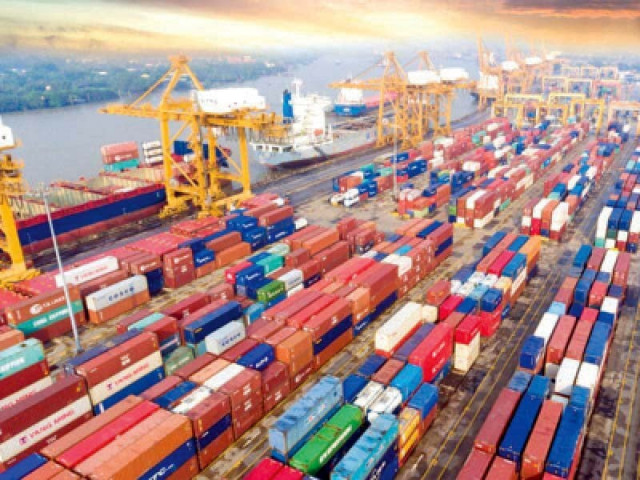Imports are good for economy!
All imports create vital linkages with domestic industry, spur economic activity

In the last government of Pakistan Tehreek-e-Insaf (PTI), we heard that importing cheese and chocolate is bad for the economy as it eats away precious foreign currency reserves.
We were told that “luxury” imports like cheese, chocolate and pet food deteriorates the trade and current accounts as well. The previous government resorted to imposition of regulatory duties on these items in the hope of cutting down the trade deficit.
It did not help as the government ended up with a trade deficit of $31 billion and current account deficit of $14 billion. The PDM coalition government has taken a step further.
We are now told that importing tea is bad for the economy and though it is not called a luxury, we are asked to cut down on the tea consumption to help preserve the forex account as Pakistan is the number one importer of tea in the world. Last year, Pakistanis spent $560 million on tea imports alone.
I hypothesise, that as a result of import restrictions, the total loss to the economy will exceed the benefit we are anticipating by saving the forex reserves.
The first reaction of economic nationalists will be of outrage and they will say why can’t we make our own tea? Before we can do it, we need to develop the productive capacity and the comparative advantage.
Tea imports should not be looked in isolation. Tea is “non-luxury” and is a common item. From local dhabas to the fancy tea places like Chai Khana, Pakistanis really love tea in all forms. In fact, for the very poor person, tea after meals is used as a sweetener.
Suppose that if the government moves to restrict or ban tea import, what will happen to the tea economy? What if a regulatory duty is imposed on tea?
The tea dhabas will be forced to close down if the extreme step of banning tea is undertaken. Fancy places will raise the price of their products.
We will certainly see a rise in smuggling of tea, thus without affecting consumption. The local markets will tap the informal markets, making the government and consumers to lose.
Why do we abhor imports?
A common fallacy behind the ban is the disregard of demand function, which creates an economy.
Around 95% of what Pakistan imports help in production and fuelling the economy, literally. Therefore, imports can never be looked in isolation.
Even the so-called luxury imports are good as they help satisfy the demand of a population, which has money to spend.
Just think for a moment – cheese imports have helped in sustaining demand for pizza shops everywhere, which has then created demand for the local production of cheese.
There are no luxury imports for that matter and all imports create vital linkages and spur economic activity.
Please remember that all restrictions on imports are in effect restrictions on exports!
For example, as soon as we lifted restrictions on the import of raw material for shoe manufacturing, it energised the production capacity, and the industry has started to export.
Is there a policy measure? We have now a market-based exchange rate regime, which is an auto-check on imports.
As dollar becomes expensive, it provides a filter for import preferences. If someone is ready to pay a higher portion of his rupee earning for a pack of tea bags or chocolate, he will place an order, transmitted through the market channels.
However, the market-based exchange rate should not be mixed with the rapid fall in the rupee value that we have witnessed.
A rapid devaluation is a bad thing for the economy, which occurs because of uncertainty in the economic policy outlook as well as political environment.
Finally, countries do not trade with each other. Firms and individuals do. Imposing restrictions on this flow is harmful for all.
Foreign individuals and foreign firms demonstrate demand for our currency when buying from us.
No country has ever become poor as a result of free trade. On the other hand, trade controls have brought harmful consequences for the economies – sometimes in the form of inefficient industry and sometimes in the form of expensive goods.
As Pakistani consumers, we always experience this. Therefore, the government should withdraw the ban on selective imports altogether and let forces of free market function.
The writer is the founder and executive director of PRIME, an independent economic policy think tank based in Islamabad
Published in The Express Tribune, June 27th, 2022.
Like Business on Facebook, follow @TribuneBiz on Twitter to stay informed and join in the conversation.



















COMMENTS
Comments are moderated and generally will be posted if they are on-topic and not abusive.
For more information, please see our Comments FAQ